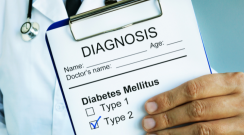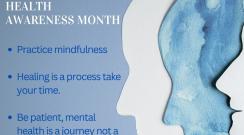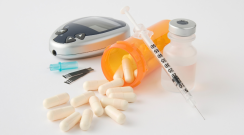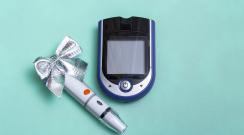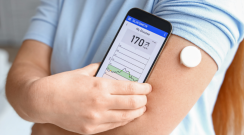Explore a range of topics including nutrition tips, physical activity recommendations, effective treatment options, and insights into various medications. Delve into the importance of mental health support and strategies for managing sick days. Discover how to effectively manage your weight, stay up-to-date on vaccinations, and navigate diabetes as you age. Learn about the latest advancements in diabetes technology and how to maintain optimal oral health. Plus, get practical advice for managing diabetes during special occasions. Empower yourself to lead a fulfilling life while effectively managing your diabetes.
- Posted: 23 May 2023
Diabetes and nutrition are closely intertwined, as the food you eat has a significant impact on your blood sugar levels, overall health, and management of diabetes. The primary goal of diabetes management is to control blood sugar levels. Nutrition plays a crucial role in achieving this goal. By making mindful choices about the types and amounts of carbohydrates, proteins, and fats consumed, you can help regulate your blood sugar levels and prevent spikes or drops.
- Posted: 13 March 2024
Weight management is essential for diabetes patients as excess weight can worsen insulin resistance and increase the risk of complications. Maintaining a healthy weight through a balanced diet and regular physical activity can improve blood glucose control, reduce the need for medications, and lower the risk of cardiovascular disease. Even modest weight loss can have significant benefits for diabetes management, including improved insulin sensitivity and better overall health.
- Posted: 13 March 2024
Vaccination is crucial for diabetes patients to protect against various infections and related complications. Diabetes can weaken the immune system, making individuals more susceptible to infections such as influenza (flu), pneumonia, and hepatitis B. Vaccines help prevent these infections and reduce the risk of serious complications, hospitalizations, and even death. Additionally, certain vaccines, like the flu vaccine, can help prevent fluctuations in blood glucose levels that can occur during illness.
- Posted: 13 March 2024
The Treatment section offers comprehensive guidance on managing diabetes through various approaches, including lifestyle modifications, medication, and monitoring. By providing information on different treatment options and their benefits, this resource empowers individuals to make informed decisions in partnership with their healthcare team to effectively manage their condition and improve overall well-being.
- Posted: 23 May 2023
Traveling with diabetes requires careful planning and preparation to ensure that you can manage your condition effectively while away from home. Before your trip, schedule a visit with your healthcare provider to discuss your travel plans. They can provide recommendations based on your specific needs and help you adjust your medication regimen if necessary
- Posted: 13 March 2024
Sleep hygiene is crucial for diabetes patients as it directly impacts blood glucose levels and overall health. Establishing a consistent sleep schedule by going to bed and waking up at the same time each day helps regulate the body's internal clock, promoting better sleep quality. Creating a relaxing bedtime routine, such as reading or taking a warm bath, signals to the body that it's time to wind down. Additionally, maintaining a comfortable sleep environment by ensuring a dark, quiet, and cool room enhances sleep onset and duration.
- Posted: 30 May 2023
When it comes to managing diabetes during sick days, there are some general guidelines that can help individuals with diabetes maintain their blood sugar levels and recover more comfortably. However, it's important to note that these guidelines may vary based on individual circumstances, and it's always best to consult with a healthcare professional for personalized advice.
- Posted: 31 May 2023
Physical activity is highly beneficial for individuals with diabetes. It's important to note that before starting any exercise program, it's recommended to consult with your healthcare provider. They can provide personalized advice, consider any potential complications or limitations, and help you establish an exercise plan that is safe and suitable for your condition.
- Posted: 01 June 2023
Diabetes can have an impact on your oral health, and it's important to pay attention to dental care if you have diabetes. Communicate any oral health concerns or symptoms to your dentist or healthcare team. By maintaining good oral hygiene, controlling blood sugar levels, and seeking regular dental care, you can help reduce the risk of oral health complications associated with diabetes.
- Posted: 13 March 2024
Have you recently received a diagnosis of diabetes? This section of our website provides essential information, resources, and support tailored to those navigating life after their diagnosis.
- Posted: 31 May 2023
Diabetes and mental health are interconnected in various ways. The challenges of living with diabetes can have an impact on mental well-being, and mental health issues can also affect diabetes management. It's essential for individuals with diabetes to prioritize their mental well-being alongside physical health and seek appropriate support when needed.
- Posted: 01 June 2023
Diabetes pills and insulin are two common treatment options for managing diabetes. Diabetes pills, also known as oral medications, help lower blood glucose levels by various mechanisms such as stimulating the pancreas to produce more insulin, improving insulin sensitivity, or reducing glucose production in the liver. Insulin, on the other hand, is a hormone that regulates blood sugar levels by allowing cells to absorb glucose from the bloodstream.
- Posted: 13 March 2024
Managing diabetes expenses can be challenging, but there are strategies to help navigate the financial aspects of living with the condition. Firstly, understanding insurance coverage and benefits is crucial. This includes knowing what medications, supplies, and services are covered, as well as any out-of-pocket costs. Utilizing generic medications and mail-order pharmacies can often save money. Seeking financial assistance programs or patient assistance programs offered by pharmaceutical companies can also provide relief for medication costs.
- Posted: 13 March 2024
Managing diabetes during different seasons requires adjusting lifestyle habits to accommodate changes in weather and activities. In hot weather, staying hydrated and protecting the skin from sun exposure are essential. Monitoring blood glucose levels more frequently is important as heat can affect insulin absorption. In cold weather, keeping warm to prevent hypothermia while avoiding extreme temperature changes is crucial. Additionally, being mindful of holiday treats and seasonal foods that may affect blood glucose levels is important year-round.
- Posted: 04 April 2023
This section provides practical advice and tips for managing diabetes during holidays, celebrations, and other special events. It offers guidance on navigating social gatherings, making healthy food choices, managing blood glucose levels, and staying physically active while still enjoying the festivities. With insights on meal planning, portion control, and handling potential challenges, this resource helps individuals with diabetes maintain balance and control over their health during special occasions.
- Posted: 01 June 2023
Managing diabetes is crucial for individuals of all ages, and it becomes even more important as one gets older, especially after the age of 65. As people age, their bodies may become less efficient at regulating blood sugar levels, and they may be more prone to developing complications related to diabetes.
- Posted: 13 March 2024
Devices and technology play a crucial role in diabetes management, offering innovative solutions to monitor blood sugar levels, administer insulin, and track health metrics. Continuous glucose monitors (CGMs) provide real-time glucose readings, helping patients to better understand their blood glucose patterns and make informed decisions about their treatment. Insulin pumps deliver insulin continuously or in preset doses, offering greater flexibility and precision in insulin delivery compared to traditional injections.










